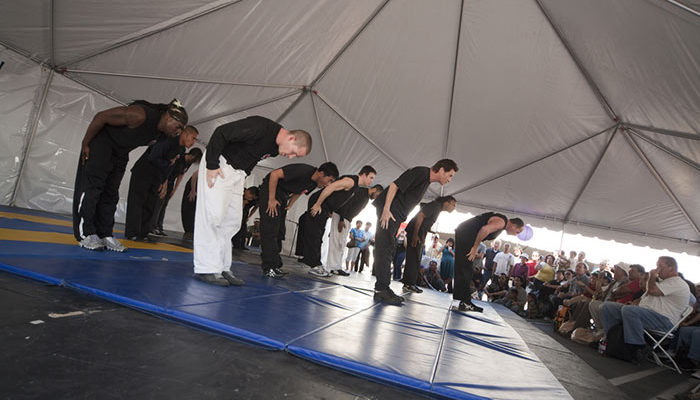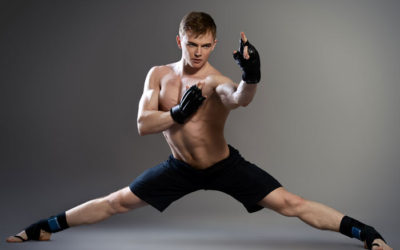Martial artists are raised on a liberal diet of respect. Respect for your master-teacher. Respect for the game and your opponent, and respect for yourself, for getting out of bed and having the will to train day in day out while the rest of the world treats minor backaches with covered chiropractic care.
My experience with respect and martial arts was primarily in the Chinese martial arts, where the master-student relationship is modeled on father and son and what still remains of the Confucian ethos. The hierarchy within the school is strict yet natural. I rarely saw infighting or rebellion, and if so it was subdued and never out in the open, where the authority or status of an “elder brother” or the master could be challenged. Not to say it doesn’t happen, just a rare occurrence as far as my experience and the stories I’ve heard go.
This story originally appeared on vice.com
http://fightland.vice.com/blog/respect-in-the-martial-arts
I recently stumbled across a very in-depth look at Bushido, the samurai ethos that has seeped its way into our culture and colored our view of Japanese warriors. Some of you may be surprised to learn that Bushido as we know it is a manufactured concept, driven at first by a well-meaning Japanese polyglot in the early 20th century, and then propelled by the militaristic state. Point is, the idea of the samurai as honorable to the point of irrationality is pretty irrational. In fact, samurai probably spent most of their time raiding, pillaging, and getting paid as best they could.
But within their known circle, in relations with their masters, clan, dojo, and compatriots, there was a form of Bushido that helped establish a natural hierarchy, similar to what I witnessed within many Chinese wushu and kung fu schools. It’s an Asian thing as well, to defer to the eldest, but it’s also a martial thing, to show respect to the master and the students he taught before you.
But if you are outside of that circle, or worse yet if you are opposed to that circle, all bets are off. Bushido be damned.
Kung fu masters in China are constantly talking smack about each other. This or that master doesn’t practice real kung fu; this or that style is weaker than our style; that guy is corrupt, this guy is a charlatan. It’s the macho version of the sewing circle. Everyone talks shit about everyone else in the fight world, and only the truly great fighters—guys like Fedor—are universally considered untouchable and outside the scope of disrespectful talk.
Read the full story here:
http://fightland.vice.com/blog/respect-in-the-martial-arts




